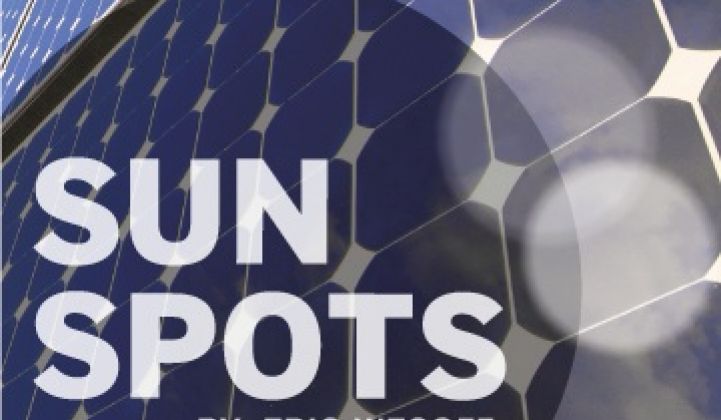How does a VC-funded solar startup navigate and survive the perfect storm of the current solar market?
Faced with plunging PV module costs, an uncertain policy framework, and vast global manufacturing overcapacity, how can the CEO of a solar startup raise capital and execute on a credible business plan?
It's going to be a challenge if you build next-generation solar panels. (See MiaSolé for that CIGS PV firm's reorganization and reduction-in-force saga; see Solexel for a different take with its thin crystalline silicon technology.)
Last year we reported on a stealth solar firm called Alion, formerly known as SunPrint, which had received seed funding from Sequoia Capital, DAG Ventures, Bright Capital, and Cleantech Group. We reported on what we were able to learn through patent filings and conversations in bars and pool halls.
In a conversation this morning with the firm's CEO, Anders Swahn, we were informed that we got it wrong. "Completely wrong," according to Swahn -- which suited the firm's stealth ambitions perfectly.
Perhaps the one thing we did get right was that the firm was once working with cadmium telluride (CdTe). At the time, the Richmond, California-based firm was intent on building utility-size, large-format CdTe panels with a wet print technology akin to that used by Nanosolar with CIGS materials.
The only firm to reach large-scale production with cadmium telluride is First Solar. Abound Solar produced megawatts of panels but lost on economics, Solexant has reportedly moved from CdTe to CIGS product development, and Bloo Solar is reportedly working with that material.
Alion was intent on both building panels and building solar power plants.
But try raising money from venture capitalists or corporate investors for a solar panel manufacturing facility. Swahn, the CEO, is experienced, but "the fact that we had module development activity made it impossible. Investors just don't want to hear it."
So, yesterday Alion shut down the entire pilot plant operation and laid off 32 employees.
That leaves 20 employees, a proprietary and still-stealthy balance of system technology, and Alion's real business plan -- which is building turnkey solar power plants. Swahn mentioned a VP at the firm who had built "half-a-gigawatt of power plants." The firm also employs former First Solar developers. He said that the firm will rely on other vendor's crystalline silicon for now and that they had development activity in Dubai, Saudi Arabia, and North America.
The CEO would not provide details on the startup's balance-of-system technology.
Certainly, working downstream in solar is going to be less tragic than working in manufacturing -- providing your technology, stealthy or not, provides a real cost-saving differentiation.



